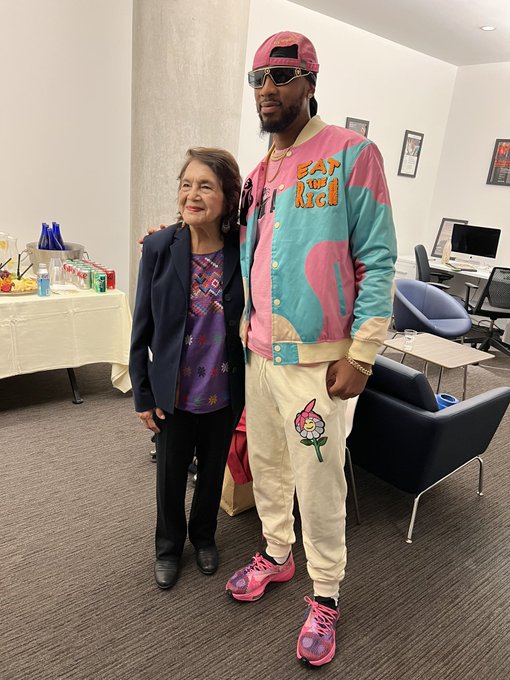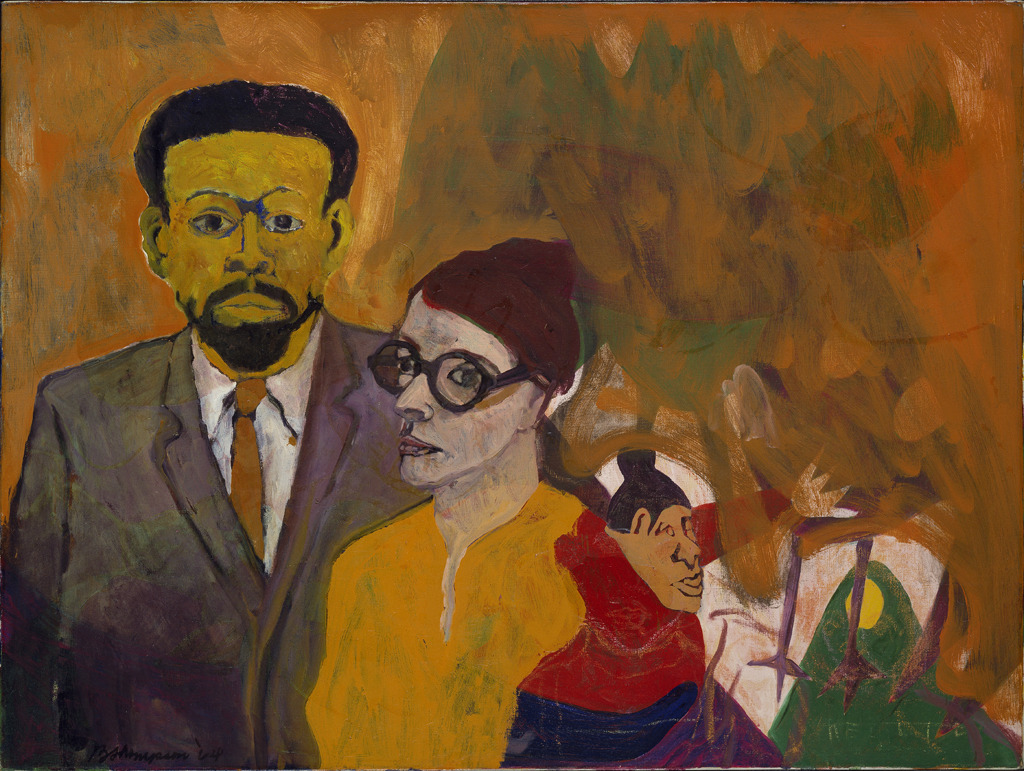Greg Abbott is not pro-life. pic.twitter.com/mqOuBzlgBP
— Beto O’Rourke (@BetoORourke) May 11, 2022
Members, Don’t Get Weary
I’m with the OG Tonight

Jolene
I once worked in a factory with a girl named Jolene. We were 17 and I had lied to get hired; we couldn’t legally work in the plant for another year.
She was white, from somewhere around “Taylor-tucky”, a name that mocked the southern roots of working class whites of the suburb of Taylor, Michigan. I lived in Detroit (still do). I was black, and I still am, as a matter of fact. Without the factory we’d never have met.
Imaging Ukraine: Poems by Maura Candela (with Photos by Emilio Morenatti)

Friday, April 22, 2022. Photo by Emilio Morenatti
Chernihiv
The caption reads, Firefighter takes a break
He sits on a swing, only thing upright
after the bombing. Hands clasped in his lap.
The Depp Heard Trial
She fears abandonment, his mom abused him.
Love twists into bitter repetition.
There’s always a deeper layer of pain,
a wound beneath the urge to hurt.
Blade
Hunter Harris and the rest of us who laugh along with her may need help at the Pearly Gates. Until then, though, bless Ms. H. for failures to forbear such as the following…
Normalize Being Hot And Not A Poet
Kacey Musgraves’ boyfriend, Cole Schafer, is a poet (derogatory). The poetry is not what I would describe as “good.” He appears to be releasing more of it:
View this post on Instagram
Hoping this is a promise!
To Make You Feel His Love
A demo by by the late Eddie Hinton.
“Amiri Baraka and Family”

A 1964 painting in the current exhibition, Bob Thompson: This House is Mine, at Chicago’s Smart Museum of Art.
False Memory
For members of my generation, tales of the Mustang they should have hung onto are almost as heartfelt as those of the Mickey Mantle cards their mothers tossed. So nothing about Maggie’s story surprised me, until her assertion that hers was a ‘63. “The first Mustang was a ‘64 ½,” I told her. A couple days later, she came back to the café and asked, “Did Pontiac have a Firebird?”
Indeed, Pontiac did – but it debuted in 1967.
Butt Beautiful
Back in the day, the New Yorker was set to run the following letter in praise of an article on women’s basketball, but it got squeezed out. Still seems on point so…
Better than Heaven
You could start with “Like Someone in Love” or “You Must Believe in Spring” but I’m pretty sure “Peace Piece” is Bill Evans’ summit. Forget me though. Just listen up now—those thrill-trills in the piano’s higher register might make you forget how hard it is to die.
Ghost in the Celine
Easter cover for Tommy and Charlie and Johnny, with “cat paw riddim.” (H/T Tiana Reid.)
BTC (Better Than Champagne and/or Beat the Clock!)
The moment Amazon workers at the JFK8 warehouse declared victory in their vote to form the first Amazon union in the United States pic.twitter.com/Fr92Wz1LIN
— Kei Pritsker (@KeiPritsker) April 1, 2022
Bad Actors
Hunter Harris notes there’s something “sexy” about not having a take on the Oscars’ slap heard round the world. (Though she goes into the gory in her gossip column.) FWIW, C. Liegh McInnes, who’s often posted in these pages, had the best analysis of what went down: “Public buffoonery is embarrassing, especially when the buffoon makes a mess at a place where, just a few years ago, folks were begging to be invited.” He was firmly in Camp Rock, pointing out how Smith’s act will make him a “respected person, a real n-word” among the benighted in black communities.
Smith wasn’t the only bad actor on parade that night in L.A. per this report from In These Times:
What’s New (Always)
My Brilliant Friend has returned. Beyond love this show. What women say to each other when only they bare speaking, what they feel about each other throughout their lives, the prints they leave on the skin of other women, there is no more interesting contemplation. A world that is the world behind a door, past a clearing, down a ravine. Lenu’s mother, pointing to her belly while her daughter stares off, smoking a cigarette, “You’re not better than us, you came from here. Where do you think your brains come from? I could have done what you did if I’d had your opportunities. I would have done better.” A few moments later to the daughter, “You can’t stand me.” Lenu, “Yes.” The mother, “Me, neither.”
A Year in Legal Limbo
In Lollipop, Bob Levin has written a totally honest “memoir” of his year as a VISTA lawyer in Chicago from September in 1967 to September in 1968.
It is totally honest because, as he says in his introduction, “I have made up up (almost) all names of individuals and organizations. I have manufactured dialogue. I have composited some characters and omitted significant others. I have altered time sequences and appropriated events which occurred to others as my own. Some of what I believed happened did not. Some of what I thought I’d made up, I learned from my journal, occurred.”
This is all in legitimate service to telling a story that needs to be told of one young lawyer’s experiences in sixties’ Chicago, that city of Sandburg’s broad shoulders and the Daley administration’s narrow and dangerous mind.
Lollipop might seem a flippant title for a book that at its core is a serious consideration of mid-twentieth America in all its shabby glory. It comes from the following statement by the Black civil rights leader and scholar Roger Wilkins: “What we are talking about is changing the way people live. Everything else is band-aids and lollipops.”
